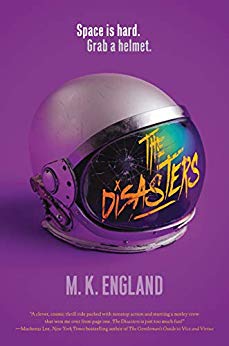The time has arrived, I’ve been looking forward to The Future is Queer book club since we hatched the idea late last year. What better way to celebrate Pride than to focus on some speculative fiction by and about LGBTQ folks. Whether you read one or all four of our options, I hope you find something below that sparks your interest so we can continue to enjoy talking about books together.
On to the boilerplate: ground rules remain the same as they always have. For those of you who might be joining in for #CannonBookClub for the first time (hello new friends!) all are welcome. The topics are numbered, and we ask that you refer to them below by that number to help people find the conversation topics they are looking for. Please try to have only one or two topics per comment – it helps build conversation. If you are responding to someone else’s thoughts, please try to respond directly to them and also tell us about your own ponderings on the book. While we’ve never once had to do this and don’t expect to now, comments that are not germane to our discussion will be removed.
We will also be talking on our social media platforms over the course of the next two days, and in our Facebook group, Cannonball Read Book Chat, so feel free to wander over there throughout the course of today and tomorrow.
And now, the topics!
- What stood out to you in the fictitious future of the book you read? Did it inspire hope?
- How important was the POV to the telling of the story? Would the book have been greatly affected by a change of perspective?
- What inherent world building components stood out to you as reflecting queer culture?
- The world around us is demanding we reckon with racial representation and bias – how were those issues explored in the book(s) you chose?
- How did the author reflect our present physical world in their imagined future?
- Talk tropey to me: which trope did your selection explore?
- What do our characters want, what are their motivations? How do you think that reflects the author’s experiences?
- Representation matters: which voices that would likely appear as a sidekick, or the best friend, were given the spotlight? What did it add to the narrative?
- Speculative fiction is often built on tales of exploration, survival, ingenuity, exceptionality, and redemption. Which of those components formed the core of the work you read, how did the author expound on it?
- Grab bag: I want to talk about something that doesn’t fit into the topics, meet me in the comments.




